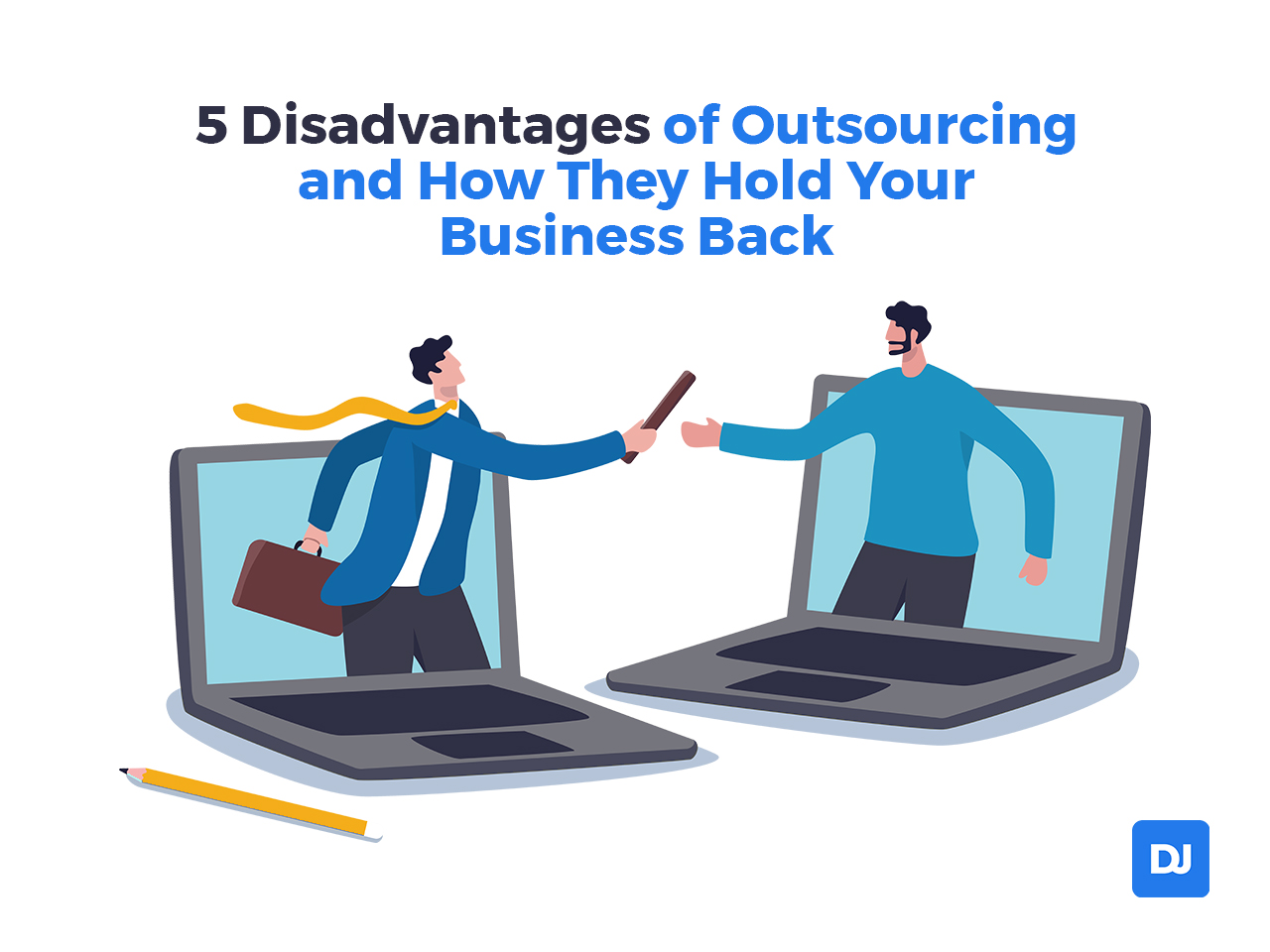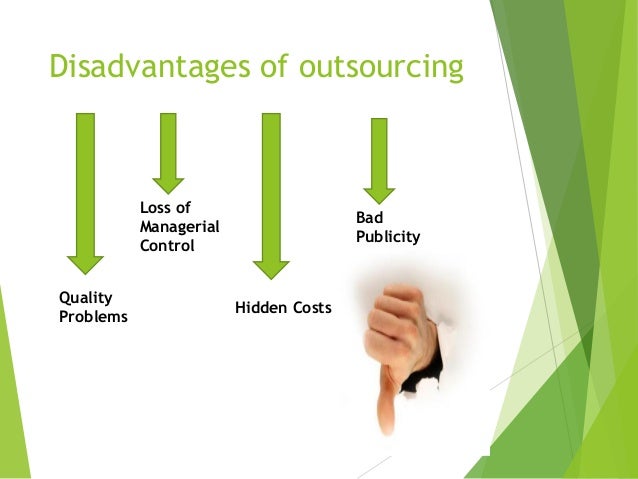What Are Disadvantages Of Outsourcing
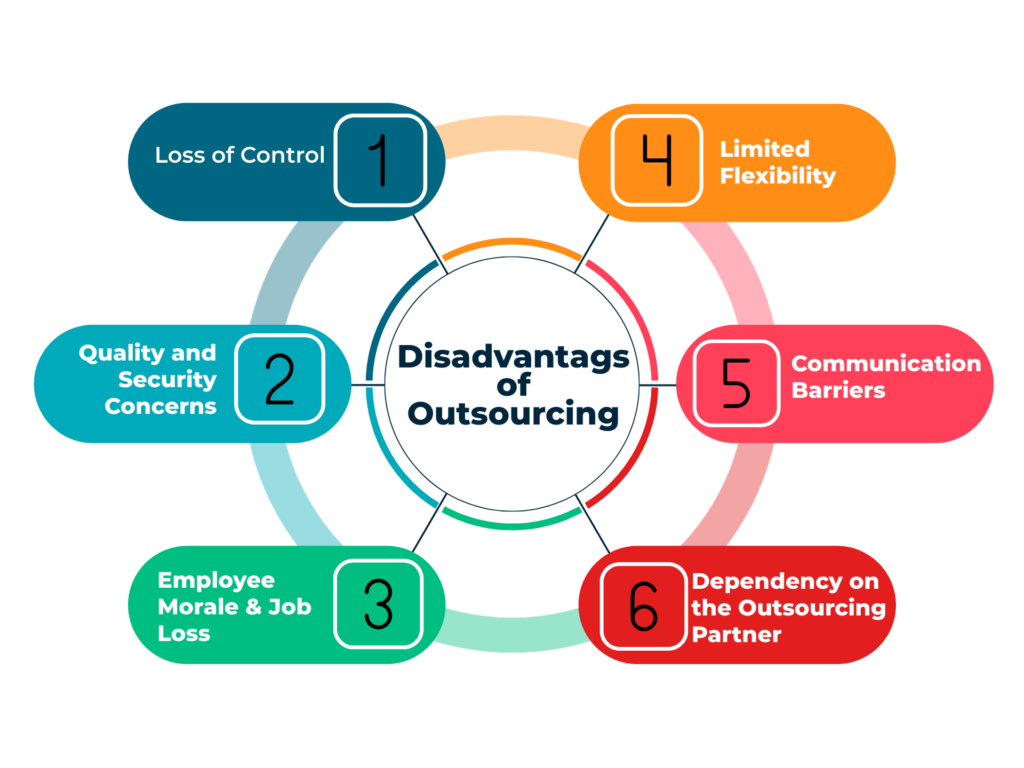
Outsourcing, the practice of contracting business functions to external providers, has become a prevalent strategy for companies seeking to reduce costs and improve efficiency. While it can offer numerous advantages, such as access to specialized skills and lower labor costs, it also carries potential drawbacks that businesses must carefully consider.
Understanding the potential disadvantages of outsourcing is crucial for organizations to make informed decisions and mitigate risks associated with this practice. This article explores the key drawbacks of outsourcing, drawing on industry research and expert insights to provide a comprehensive overview.
Loss of Control
One of the primary disadvantages of outsourcing is the potential loss of control over the outsourced function. When a company delegates a task to a third-party provider, it relinquishes direct oversight and management of that activity.
This can lead to concerns about quality control, data security, and compliance with company policies. According to a report by Deloitte, lack of control is consistently cited as a major concern by organizations considering outsourcing.
Communication Challenges
Effective communication is essential for successful outsourcing relationships, but it can be challenging to achieve. Language barriers, time zone differences, and cultural nuances can all hinder clear and timely communication between the company and the outsourcing provider.
These communication breakdowns can lead to misunderstandings, delays, and errors, ultimately impacting the quality and efficiency of the outsourced function.
"Communication is paramount in any outsourcing relationship, and breakdowns in communication can quickly derail even the best-laid plans,"notes Gartner analyst, Susan Moore.
Security Risks
Outsourcing can introduce new security risks, particularly when sensitive data or intellectual property is involved. Companies must carefully vet their outsourcing providers to ensure they have adequate security measures in place to protect confidential information.
Data breaches and security incidents can have serious consequences, including financial losses, reputational damage, and legal liabilities. A recent Ponemon Institute study found that companies that outsource certain functions are more likely to experience data breaches than those that handle those functions in-house.
Hidden Costs
While outsourcing is often touted as a cost-saving measure, it can also entail hidden costs that are not immediately apparent. These costs can include contract negotiation fees, transition costs, monitoring expenses, and the cost of managing the outsourcing relationship.
Moreover, if the outsourcing provider fails to meet expectations, the company may incur additional costs to rectify the situation or bring the function back in-house. Careful cost analysis is essential to accurately assess the true cost savings of outsourcing.
Impact on Employee Morale
Outsourcing can have a negative impact on employee morale, particularly if it leads to job losses or reduced opportunities for advancement. Employees may feel insecure and resentful if they perceive outsourcing as a threat to their livelihoods.
This can lead to decreased productivity, increased absenteeism, and higher employee turnover. Companies should communicate transparently with their employees about the reasons for outsourcing and take steps to mitigate the negative impact on morale.
Reliance on Third-Party Providers
Over-reliance on third-party providers can create vulnerabilities for the company. If the outsourcing provider experiences financial difficulties, goes out of business, or fails to meet its contractual obligations, the company's operations could be disrupted.
It is important to have contingency plans in place to address potential disruptions and to diversify outsourcing providers to reduce dependence on any single vendor. Due diligence and risk management are crucial aspects of successful outsourcing.
In conclusion, while outsourcing can offer numerous benefits, companies must carefully consider the potential disadvantages before making a decision. By understanding the risks and taking steps to mitigate them, organizations can maximize the benefits of outsourcing while minimizing the potential drawbacks.
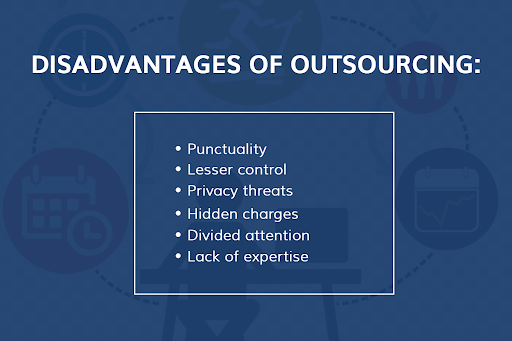
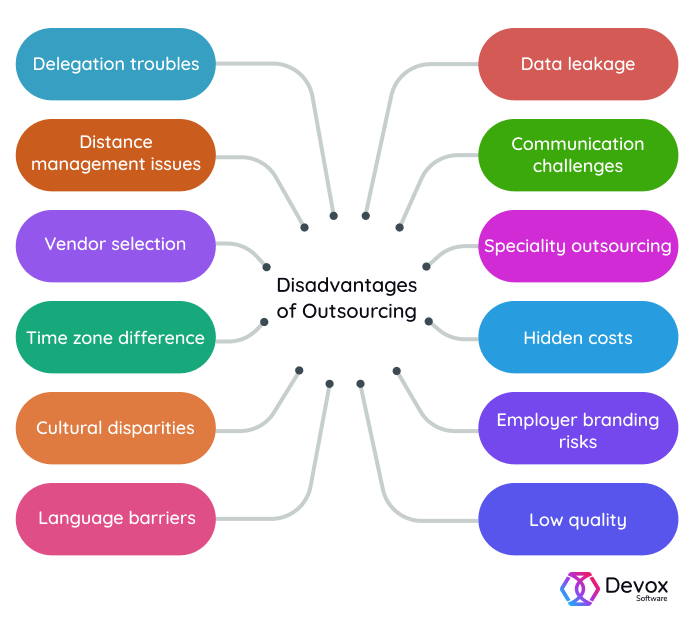
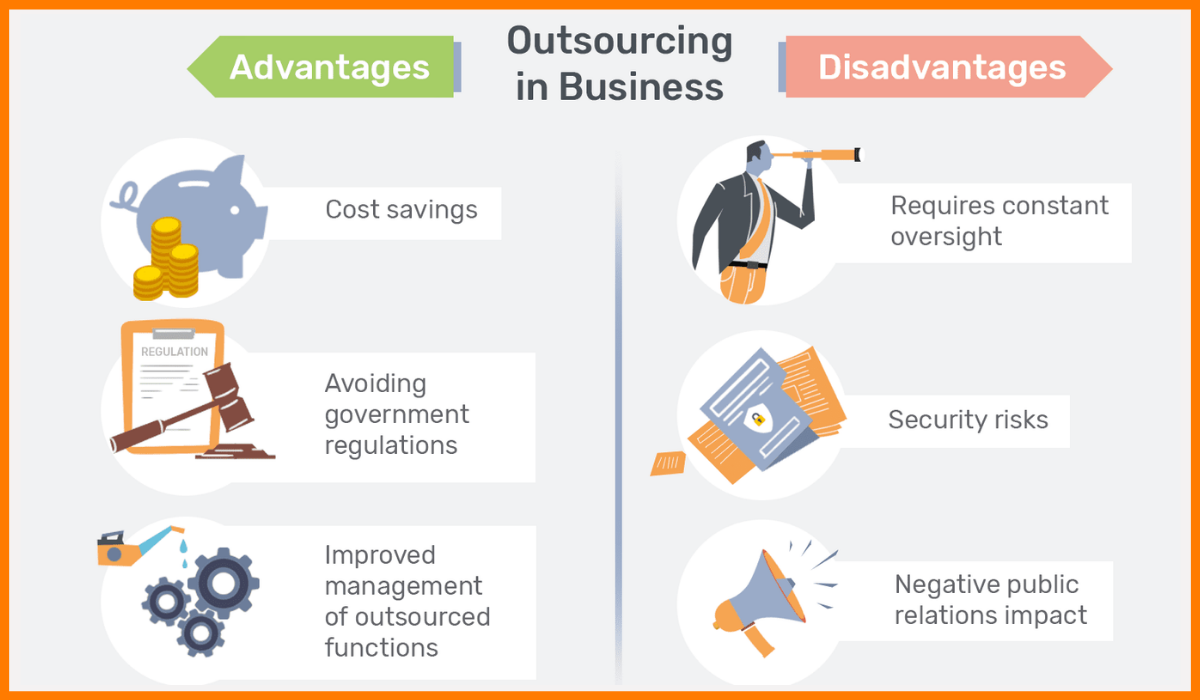
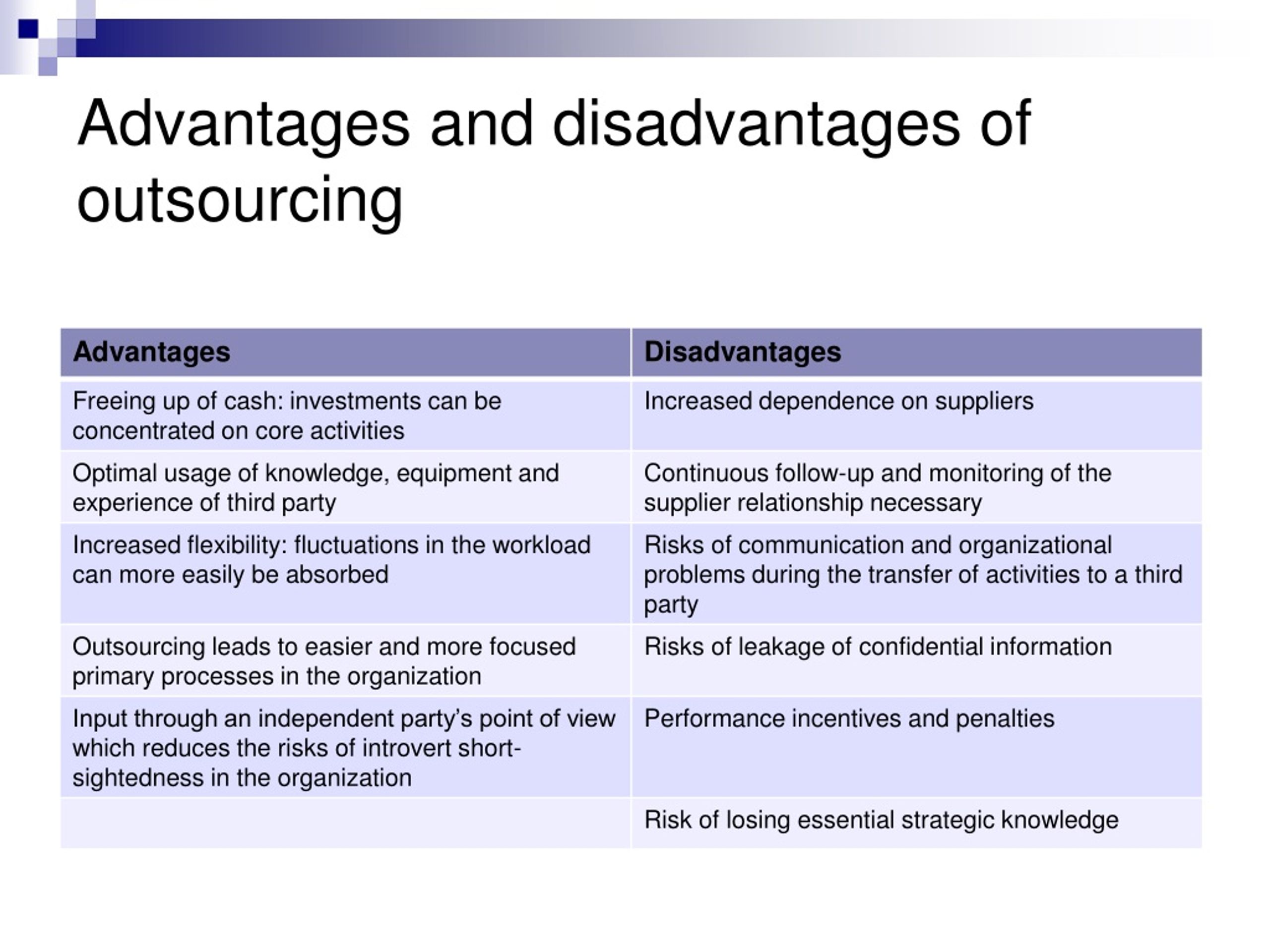
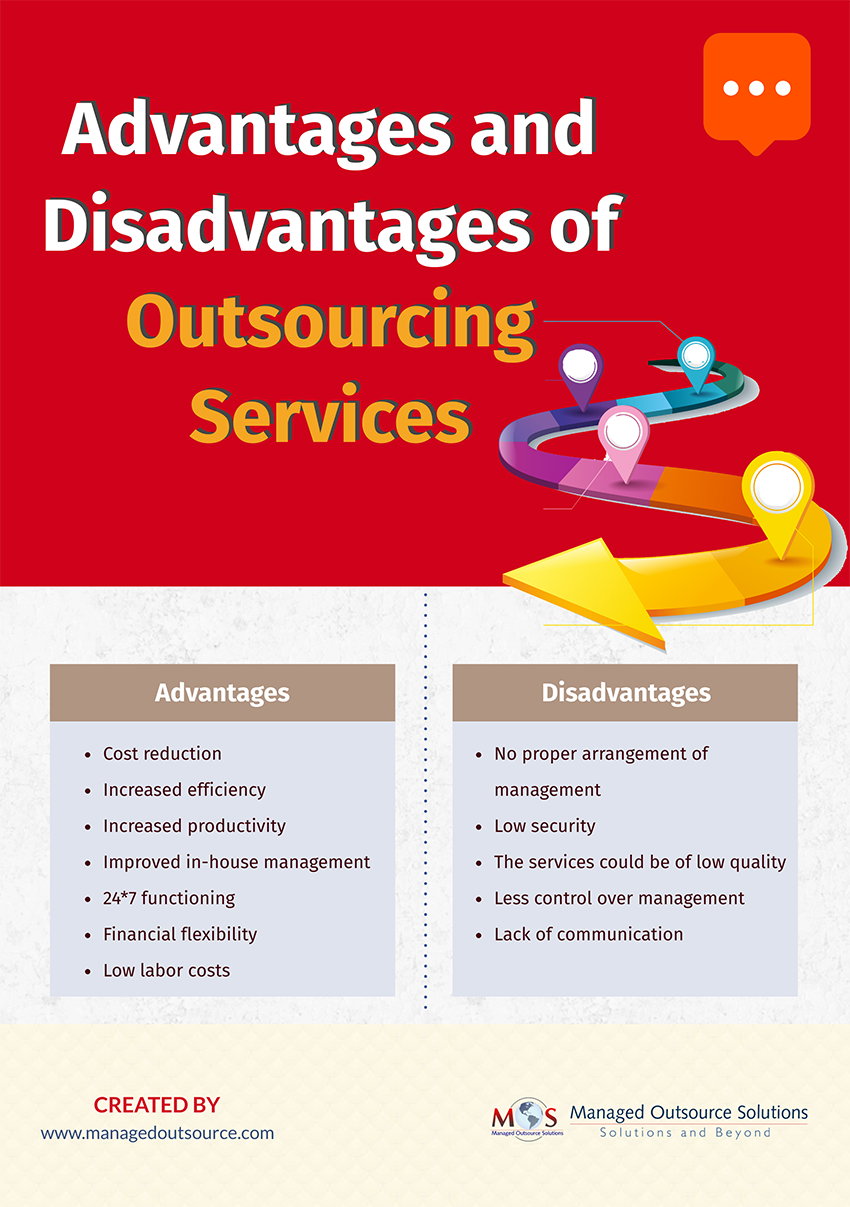


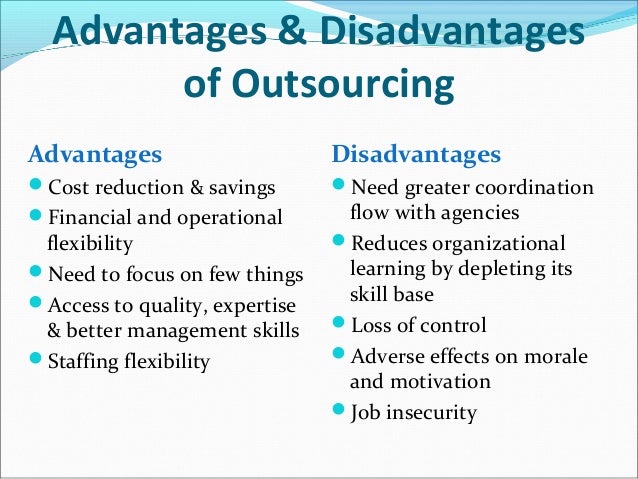
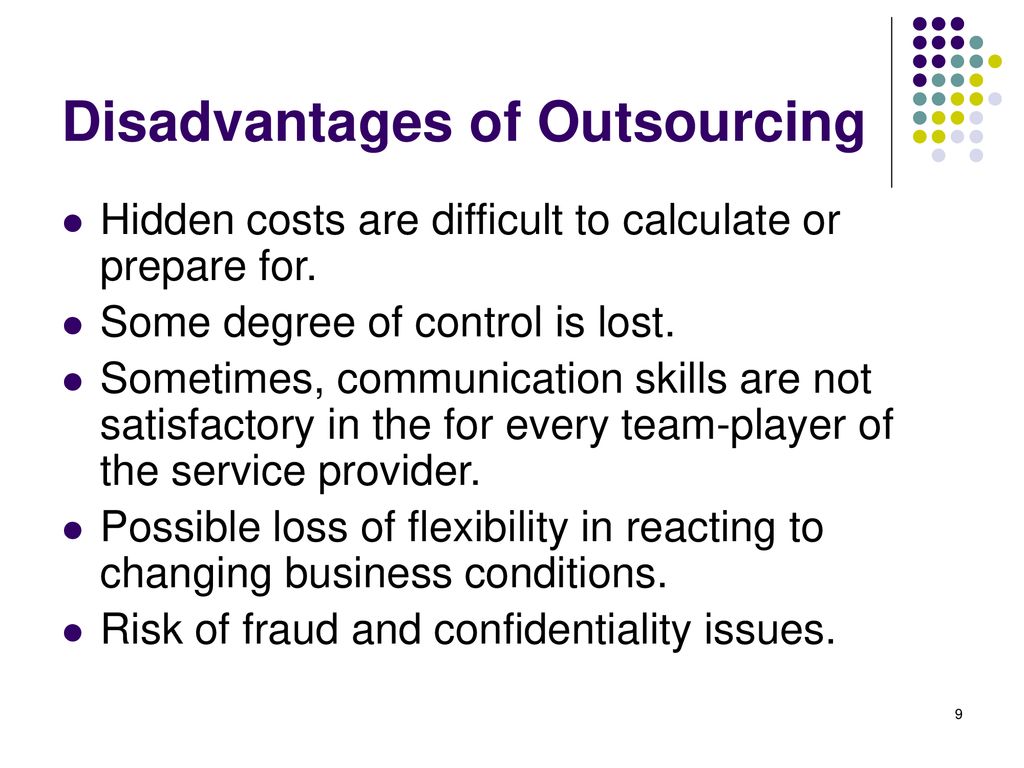

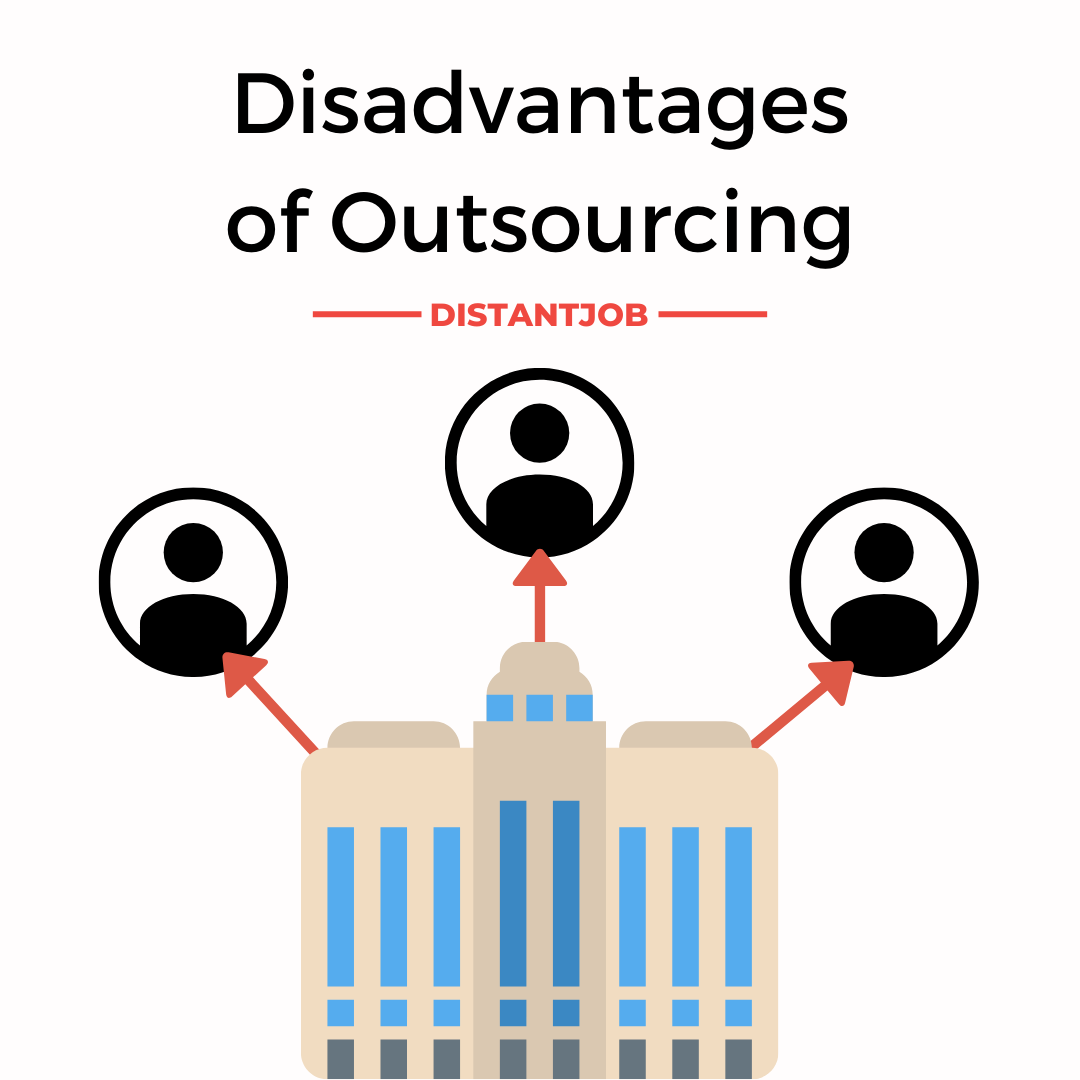

![What Are Disadvantages Of Outsourcing Outsourcing Consultants [Who They Are & What They Do] - Portfolink](https://portfolink.com/blog/wp-content/uploads/2024/04/disadvantages-outsourcing.jpg)

